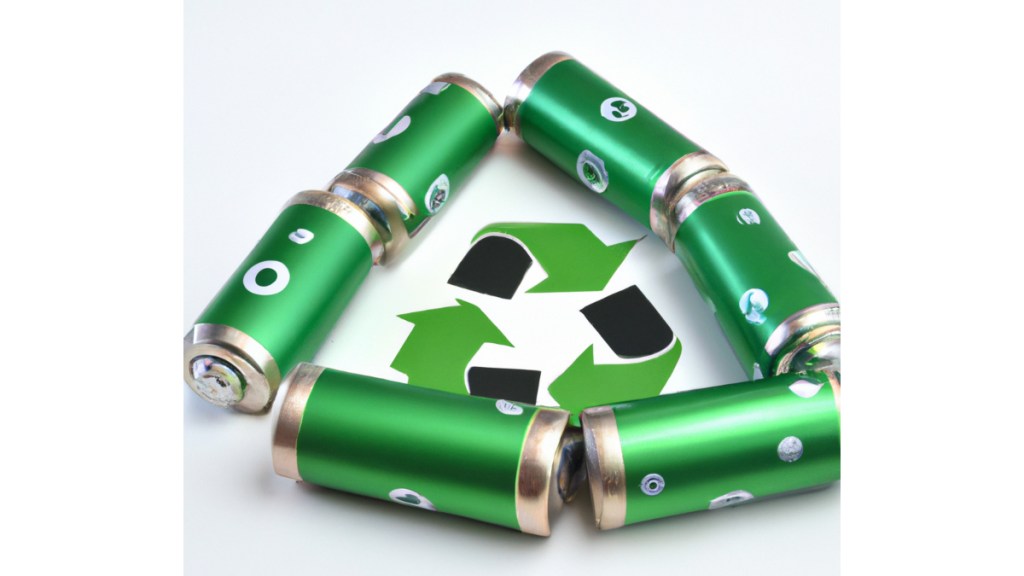By Arvind Bhardwaj
The rising issue of end-of-life spent lithium-ion batteries (Lithium-Ion Battery’s) arises from the widespread use of these batteries in everyday items like portable electronics, electric vehicles, and renewable energy storage systems worldwide. This surge in usage has led to a rapid increase in electronic waste (e-waste) generated from Lithium-Ion Batteries. For example, in 2025 there will be more than 1 billion electric cars on the road globally. In addition to this, global lithium‐ion battery demand will increase from 700 Gigawatt hours (GWh) in 2022 to 4 TWh by 2030 which amounts to $ 30 billion worth of investment needed for sustainable recycling globally over five years (2025-2030).
Sustainable Recycling of Lithium-ion Batteries
Lithium-ion batteries, the powerhouse behind the gadgets and electric vehicles, uses lithium ions for high energy density. They store renewable energy and are essential in gadgets like laptops and phones. With a lifespan of about 2,000 cycles (3-4 years), its demand is expected to expand at a compound annual growth rate (CAGR) of 9.6% between 2020 and 2030. These unsung heroes are essential to our connected, tech-driven world.
Lithium, Cobalt and nickel are the main ingredient in lithium-ion batteries. While India has a supply of nickel, cobalt is scarce because most of the cobalt used comes from mines that are owned or controlled by China or the Democratic Republic of the Congo. Recycling these batteries is crucial for sustainability, aiming to recover components efficiently with minimal energy consumption and loss. This not only reduces waste but also aligns with our collective responsibility to minimize the environmental impact of our technology choices.
Although lithium-ion batteries are expensive to produce, but their profitability comes from the metals that can be recycled. Commercial recyclers provide materials compensation and responsible management, making battery recycling an economically viable option. Choosing these recyclers guarantees financial gains for businesses or individuals participating in the recycling process, as well as sustainability for the environment.
Sustainable recycling of Lithium-ion batteries
The procedures for getting rid of these used Lithium-Ion Batteries are problematic. On the one hand, because lithium-ion battery e-waste contains complex components, the common procedures of landfilling and incinerating it create major issues about health and the environment. However, the lack of metal resources available for the production of Lithium-Ion Battery’s has raised interest in recycling as a viable alternative. In addition to addressing safety and environmental concerns, this strategy acknowledges the potential benefit of recovering valuable metals from wasted Lithium-Ion Batteries.
In essence, the challenge lies in finding a balance between the growing need for lithium-ion batteries and the responsible management of the resulting e-waste. The transition toward recycling reflects a broader commitment to minimizing environmental impact, optimizing resource utilization, and embracing the principles of a circular economy.
India’s current scenario of lithium-ion battery recycling
Lithium-ion battery recycling is still a relatively new concept in India. Currently, the conventional means of getting rid of them include incineration and landfills, both of which are bad for the environment and may cause harm to neighbouring populations. But these batteries carry some risk of their own, so it’s not just the planet that’s in danger. They include materials that, in the event that something goes wrong during discharging or shredding, could catch fire or even explode. Tragically, mishandling defective batteries has resulted in incidents all across the world where people were harmed and, tragically, some even lost their lives. Therefore, it’s not just about being environmentally conscious; it’s also about protecting our communities and ourselves from possible threats. To ensure that we handle these batteries appropriately in India, it is evident that we need to improve recycling procedures and awareness-building. Government policies like EPR in Lithium-ion batteries also pushing toward recycling by linking both the manufacturers and recyclers.
Currently, the lithium-ion battery recycling industry in India is still in its infancy phase. Several producers and recyclers are emerging to cope with the increasing demand of lithium-ion batteries as well as the rising prices of raw materials. The global market for lithium-ion batteries is expected to grow at a compound annual growth rate (CAGR) of 5% through 2026, according to Transparency Market Research (TMR).
The author is the Co-Founder and CTO, MiniMines Cleantech Solutions
Disclaimer: The views and opinions expressed in this article are solely those of the original author. These views and opinions do not represent those of The Indian Express Group or its employees.



















